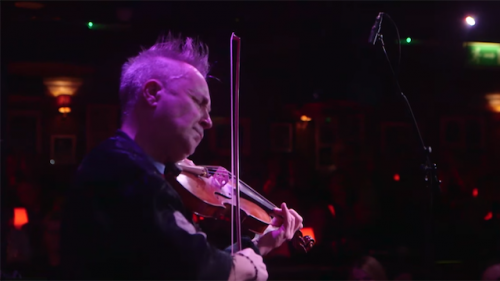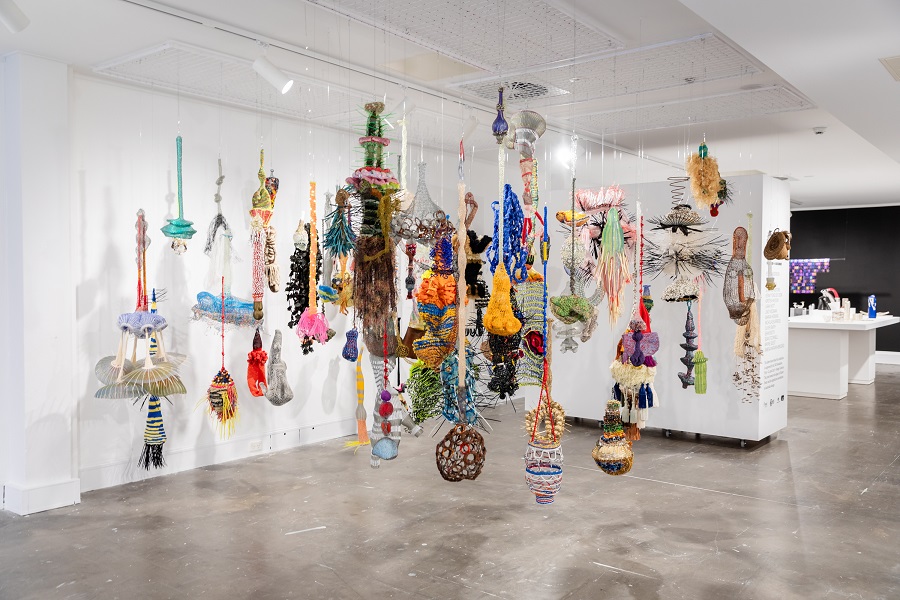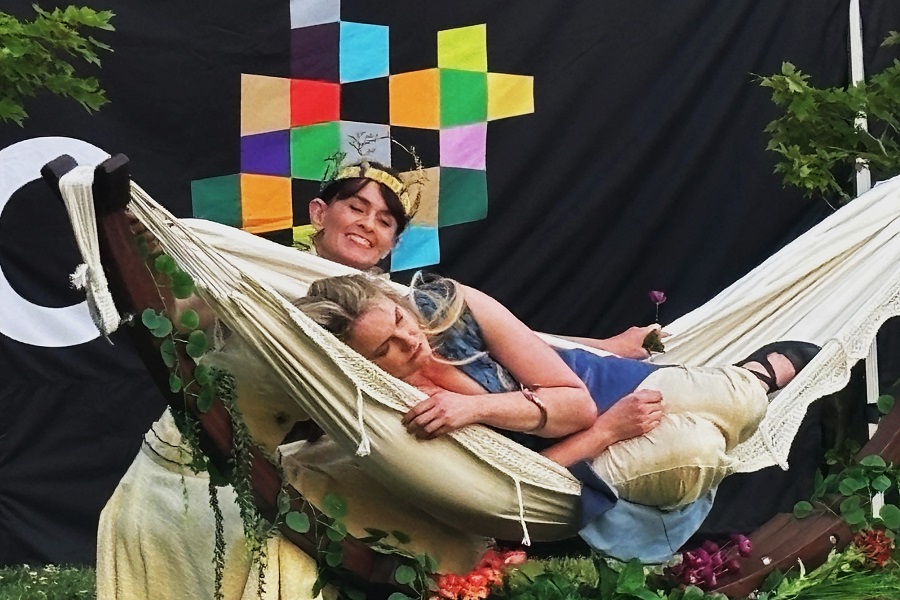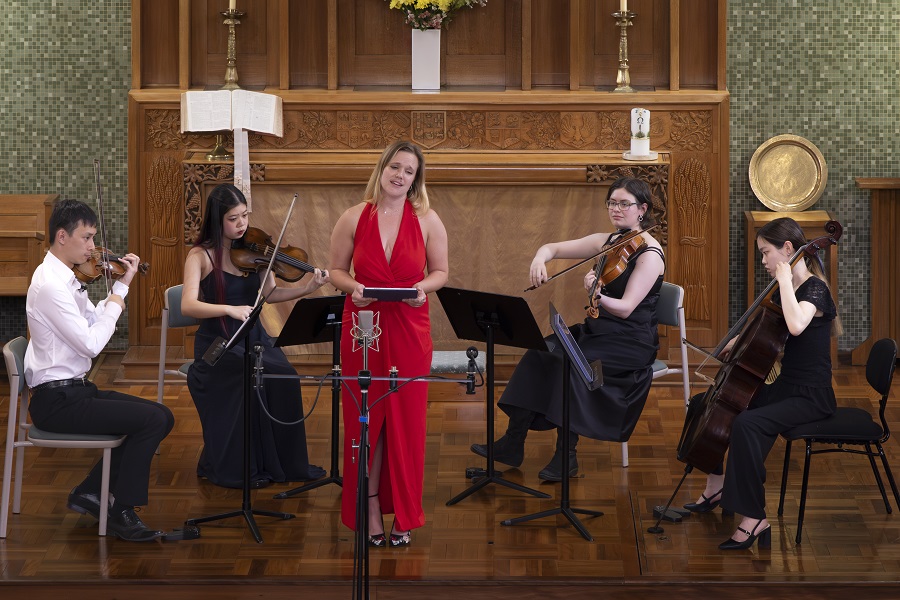
WHEN you think about it, starting a jazz concert with Bach fits; after all, he likely was the greatest improviser of them all. And so it was with violinist, Nigel Kennedy’s concert.
Dressed in what could have been from Vinnies, and with his trademark, gelled-up, spiky hair, Kennedy looked for all the world like a punk rocker, save for the chains and body piercings. Almost incongruently, the band, similarly clad, had created a soft shimmering sound to introduce him, the audience whooping and whistling already. They were bassist, Piotr Ku?akowski; cellist, Peter Adams and guitarists Howard Alden and Rolf Busalb.
Then, just as incongruently, Kennedy began playing Bach’s “Sonata for Solo Violin No.1”. Subtle nuances, particularly in his use of rubato, deeply expressive phrasing and tonal qualities to die for, Kennedy’s performance of the adagio and fuga movements seemed to suspend time itself, interrupted only at the end by more whistling and whooping from an audience that was ready for a great night’s entertainment.
And they were not disappointed, for, then, the mood changed very much to the jazz idiom for the balance of the concert.
A suite by Kennedy himself was to follow, but he threw in something of a bridge between Bach and Kennedy’s “second favourite composer”. The quartet joined Kennedy in an exquisitely smooth and thoughtful arrangement of the old Italian standard, “Arrivederci Roma”, which featured Kennedy on piano and had the audience in a state of swoon.
But then it was Kennedy’s suite “The Magician of Lublin”, based on the book of the same title by Isaac B Singer. A quite long piece, it was intensely evocative as it roamed through classical, Jewish and jazz stylings. These influences sparkled at one minute, lounged at another, danced at still another, and even reflected on the plight of the Jews in eastern Europe.
Unusually, the audience demanded and got an encore even before interval. As a prelude to the second half, the ensemble played Gershwin’s “How Long has this Been Going On”. It was another swoon piece in another brilliantly intelligent arrangement that featured some very fine improv solos. An entirely different arrangement featured in the second half.
And so, it was on to the music of Gershwin. Some favourites made up a very attractive and quite long medley, which again featured Kennedy on violin and piano with captivating improvisations aplenty from all band members.
The first of two more encores was a medley of a couple of Irish tunes – one from the south and one from the north, “Londonderry Air”, with the concert concluding with an improvisation that featured snippets from Gershwin’s “Rhapsody in Blue” and some truly acrobatic solos from all players.
Kennedy’s audience banter was as spontaneous as the music, and even to some extent the program itself. It was very much a one-off performance for an audience that was engaged and appreciative to the point of a standing ovation, even after the musicians had left the stage. This was a very special experience.
Who can be trusted?
In a world of spin and confusion, there’s never been a more important time to support independent journalism in Canberra.
If you trust our work online and want to enforce the power of independent voices, I invite you to make a small contribution.
Every dollar of support is invested back into our journalism to help keep citynews.com.au strong and free.
Thank you,
Ian Meikle, editor




Leave a Reply